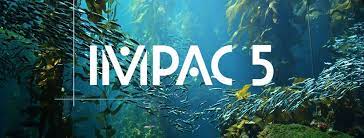Eleven bluetech startups from around the world presented at the IMPAC5 conference in Vancouver on Monday, showcasing how they can help to protect marine environments.
Startups and social enterprises were invited to present their ideas for enhancing the viability or creation of marine protected areas, or MPAs – designated areas that need established protection for long term conservation of marine species, habitats and ecosystems. To participate in the MPA Pitch Challenge, these companies needed to have sustainable revenue.
The challenge was held at the Impac5 – the Fifth International Marine Protected Areas Congress, which has been taking place in Vancouver. Impac5 is a global forum that brings together ocean conservation professionals and officials to discuss issues around and make plans for MPAs.
The pitching event was moderated by: Justin Manley, Senior Advisor of OceanKind and President-elect of the Marine Technology Society; and Eric Siegel, Chief Innovation Officer of the Ocean Frontier Institute and Executive-in-Residence at the Creative Destruction Lab at Dalhousie University.
The 11 startups and their presenters in the MPA Pitch Challenge were:
AbbaTek Group, St. John’s
Jean-Samuel Poirier, Co-Founder
AbbaTek Group has developed MPConnect, which is a platform that allows humans to input data on oceans. Through a combination of “people power”, data science and machine learning, the company aims to develop actionable data in an effort to achieve sustainable development goals.
BlueNav, Arcachon, France
Mathilde Gombeaud, COO
BlueNav has developed hybrid engines for boats with the aim of accelerating boat electrification and reducing the use of fossil fuels on the ocean. The company, which recently closed a €1.3 million (C$1.9 million) seed round, offers a range of products that aid the transition from internal combustion engines to electric engines in boats.
Coastal Carbon, Waterloo, Ont.
Kelly Zheng and Thomas Storwick, Co-Founder
Founded last year, Coastal Carbon is using artificial intelligence and machine learning to measure blue carbon credits for kelp farmers. Marine biomass projects like kelp farms offer huge potential for capturing carbon, but measuring how much carbon they capture can be difficult. Coastal Carbon helps to measure the carbon being captured so the kelp farmers can claim carbon offsets.
Dartmouth Ocean Technologies, Dartmouth, NS
Vincent Sieben, CTO
Dartmouth Ocean Technologies has developed a V-shaped towable platform on which sensors are mounted to gather ocean data when towed behind a boat. DOT also offers two of its own sensors—one that detects phosphates and another that can identify DNA in the marine environment.
eOceans, Halifax
Christine Ward-Paige, Founder, CEO, Lead Scientist
The company has developed an app for Android and iOS that allows scientists and other people around the world to input their observations on all facets of the world’s oceans. The platform includes a databank of 560,000 marine species, allowing users to record sightings of most known plants and animals in the oceans.
NAVFeas, San Clemente, CA.
Sam Malagon, COO
Navfeas – whose name is derived from “Navigate what is feasible” – is a software and data systems company that aims to use digital technologies to promote biodiversity. It combines artificial intelligence, geographic information systems and other technologies to address problems in such areas as sustainable fishing, dynamic ocean management, and climate response.
Sari Tolvanen, CEO/Founder
OceanEye has developed a solution that aims to address three huge problems: the loss of biodiversity, climate change and global inequity. Its marine biodiversity conservation platform and proprietary technology allow micropayments from marine biodiversity sightings to coastal communities. It is used by responsible marine tourists and tourism operators globally.
OnDeck Fisheries Ai, Vancouver
Alexander Dungate, Co-Founder
OnDeck's automated catch monitoring for fishers provides a fast and affordable solution to ensure accurate reporting on how many fish are removed from the ocean. Misreporting of catch is contributing to the global collapse of fisheries. Without the ability to monitor what is being caught at sea, it's impossible to sustainably manage fisheries.
SafetyNet Technologies, London
Dan Watson, Co-Founder and CEO
SafetyNet Technologies aims to develop devices to help the commercial fishing industry target specific species, or certain ages of a particular fish, making the industry more sustainable. SafetyNet has been building sophisticated LED systems to enable experimentation into how light can distinguish between ages and species of fish, and is applying that knowledge to create simple sets of lights to help fishermen catch the right fish.
Starboard Maritime Intelligence, New Zealand
Kelly Rummins, Product Marketing Manager
Starboard helps nations tackle complex maritime challenges, ranging from assessing the risks of arriving vessels to detecting illegal fishing and uncovering non-reporting dark vessels. It offers a subscription-based software that provides teams a comprehensive view of maritime activity and powerful tools for analysis.
uWare Robotics, Brussels
Sayri Arteaga, CEO and Engineering
uWare Robotics is a deeptech startup specializing in data-driven engineering solutions for coastal environments. The company is now providing autonomous 2D seabed mapping and map generation. Soon it will start the next phase of autonomous 3D inspection applicable for infrastructure such as ports, ship hulls and more complex ecosystems such as coral reefs.










